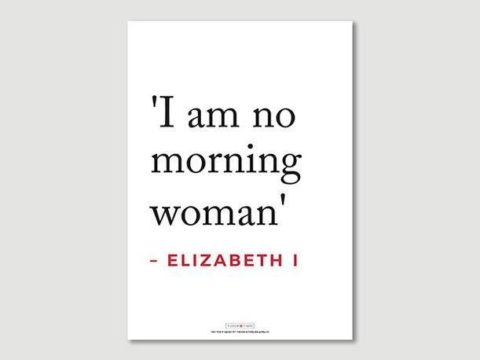Thomas More: Life Story
Chapter 6 : Parliament
Henry VII had been an enthusiastic patron of scholars at home and abroad and More and his friends hoped and believed that Henry VIII would be even more generous. Lord Mountjoy wrote to Erasmus suggesting that he immediately visit England again and within weeks the Dutch scholar was ensconced at More’s home at Bucklersbury.
It was during this visit that Erasmus wrote one of his most famous works, ‘Moriae Encomium’ or ‘In Praise of Folly’. This pun on his friend’s name, and his naming of More as his inspiration, has forever caused the book to be associated with More. Although, on the surface, a humorous work, it was an indictment of corruption in both church and state across Europe. This call for reform of the church was an important element in the life and spirituality of More and his friends. They urged reformation in the manners and morals of the clergy, worked to improve education (Colet’s foundation of St Paul’s School was the greatest example of this) and sought to meld the City of God with the City of Men.
Soon More was in a position to change matters, if he could. He was selected by the Mercers to be one of their four representatives, or ‘burgesses’ in the Parliament that was called in December 1509 and which sat from 21st January to the end of February 1510. Whilst the City was free to choose its representatives, it cannot have hurt that More was on good terms with many of the men surrounding the new King – Mountjoy and Archbishop Warham included.
The new Parliament followed the custom of a monarch’s first – granting him customs duties and other sources of income. In theory, kings were supposed to ‘live of their own’, that is maintain themselves and their households, and undertake all usual government business from the income from Crown lands, together with traditional customs duties. Parliament only granted additional taxation for extraordinary expenditure, such as war.
As well as now being a Burgess of Parliament, More entered on his judicial career as Under-Sheriff of London, dealing with the mass of everyday criminal cases in the City, sitting every Thursday and Friday morning. He was also appointed as an arbitrator in the Court of Chancery, to help with commercial disputes.
As his duties increased, so did More’s household. Erasmus remained at Bucklersbury until early 1511, and the household also contained the King’s and Lord Mounjoy’s Latin Secretary, Andrea Ammonius. Born Andrea dell Rena, in Lucca, he was of similar age to More and lived with the family for some time.
There were also the Mores’ four children and a foster-daughter, Margaret Giggs. But soon tragedy struck when Joanna More died in the autumn of 1511, aged no more than 24. Although child-birth was a frequent cause of early death, it does not seem to have been the case here. The most likely culprit, according to More’s biographer, John Guy, was severe influenza, of which there was an epidemic that year.
Within a month of Joanna’s death, Thomas had obtained a special licence to remarry, without the calling of banns – allowing a speedy ceremony. His new wife was the widowed Dame Alice Middleton, nee Harpur. Alice is often a figure of pantomime comedy in histories of More, partly because of the association with the word ‘dame’, but the reality was very different.
To begin with, the title ‘Dame’ was used for all widows of knights, it had no connotations of comedy. Second, rather than being much older than More, as has been alleged, she was probably around three years his senior. Finally, although there were many jokes in More’s correspondence about wives, this was stock comedy and there are also many references to their happy home and to Alice’s practical concern for More’s career and her affectionate role as wife and step-mother. She also had a witty tongue to match More’s own.
Perhaps More’s and Alice’s true feelings can be ascertained from the fact that when More commissioned the tomb in which he planned to lie for all eternity, he sought to lie between his two wives, with Alice agreeing to be buried with him, rather than her first husband.
Alice was less popular with Erasmus and Ammonius – perhaps because she considered them to be spongers. Soon after the marriage, Ammonius was requested to find his own home, having stayed with More for well over a year.
More’s new wife also brought a daughter of her own into the household, another Alice, as well as money and property. It was an excellent marriage for a man with a burgeoning career. Shortly after their marriage, another ward entered it, Anne Cresacre, who was to marry More’s son as soon as they were of age.
The household at Bucklersbury expanded to take over more of the property. It was a large and commodious house with gardens and an aviary. Thomas and Alice presided over it in almost model Christian fashion – the servants were well treated, but worked hard; gambling, dicing and cards were forbidden; prayers were read at morning and evening for the household, and on holy days (which were very frequent) everyone was obliged to wake for the night prayers.



